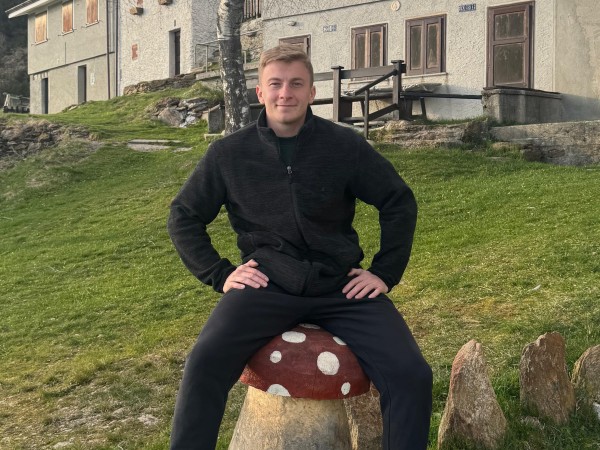Katherine Wakelin
"My research investigates the feasibility and preliminary effectiveness of an online, two-week compassionate imagery intervention for veterinarian mental health."
Course
Clinical Psychology PsychDEntry year
2018Research project
An online compassionate imagery intervention for veterinarian mental health: a feasibility study
Why I chose Surrey
My aspiration to be a clinical psychologist was based on wanting to work therapeutically with individuals to help them understand, manage and overcome psychological distress and difficulties. I applied to the Clinical Psychology PsychD course as Surrey considered applicants coming straight from undergraduate degrees who’d completed clinical placement years.
My research project
Veterinary surgeons have one of the highest suicide rates of all professions, with a vulnerability to psychological distress. It’s suggested this is a result of high levels of self-criticism and perfectionism. Compassion-focused therapy (CFT) is shown to be particularly effective at reducing psychological distress in individuals with high self-criticism but there’s no previous research around the application of these psychological interventions on vets. My research investigates the feasibility and preliminary effectiveness of an online, two-week compassionate imagery intervention for veterinarian mental health.
My results have reported impressive feasibility and preliminary effectiveness of the remote intervention. The outcomes support the growing field of CFT and indicate that compassion-focused techniques may be highly relevant to supporting the veterinarian population with their mental wellbeing. Therefore, randomised control trial research is recommended as the next step to establish effectiveness of the intervention.
During my project, I’ve been working with the School of Veterinary Medicine to help them integrate self-compassion and wellbeing teaching into the curriculum. Seeing practical applications of my research is highly rewarding, and the feedback and appetite from the veterinarian population have been phenomenal!
"I'm helping individuals to relive, update and reconstruct traumatic events so that the brain can process the traumas as memories."
My clinical placements
Two and a half days a week I’m out on my NHS clinical placement. I’m currently working in a specialist trauma service, delivering trauma-focused CBT for post-traumatic stress disorder (PTSD). This involves helping individuals to relive, update and reconstruct traumatic events so that the brain can process the traumas as memories and no longer experience recurrent trauma flashbacks and nightmares. This work has been highly rewarding – it’s been fantastic to see the significant, meaningful changes clients have made through therapy.
My support networks
There’s an extremely supportive culture on my course. I have:
- A clinical tutor who meets me regularly to review my learning on placements
- Placement supervisors providing two hours of supervision a week on placement
- Research supervisors who meet with me monthly to supervise my thesis
- A qualified clinical psychologist mentor outside of the University who meets with me as often as needed
- A buddy in the year above.
I’ve received fantastic support from my supervisors. I’ve learnt a vast amount from them and thoroughly enjoyed the process. My research supervisors’ encouragement has enabled me to publish the first half of my thesis, a meta-analysis of compassion-related interventions for reducing self-criticism.
My career and development
I’m about to finish my course and start my first qualified clinical psychologist role working in a Community Learning Disability team. I thoroughly enjoyed my placement in this area and I’m excited to return. I think I enjoy it so much because the diversity in clients and creativity of the clinical work keeps every day varied and interesting. I’ll not only offer talking therapies to my clients but also neurological assessments and behavioural work, with lots of consultation with families, carers and staff teams.
My advice
If you’re considering becoming a clinical psychologist, seek out experience working with people already doing the role in the NHS, to confirm if it’s right for you. Undergraduate placement years provide a great opportunity for this as assistant psychologist positions can be fiercely competitive once you have graduated from your undergraduate degree. If after gaining relevant experience you decide you want to be a clinical psychologist, don’t put off applying! You may get lucky and get on – but if you don’t, learn from the application process and apply the following year.

